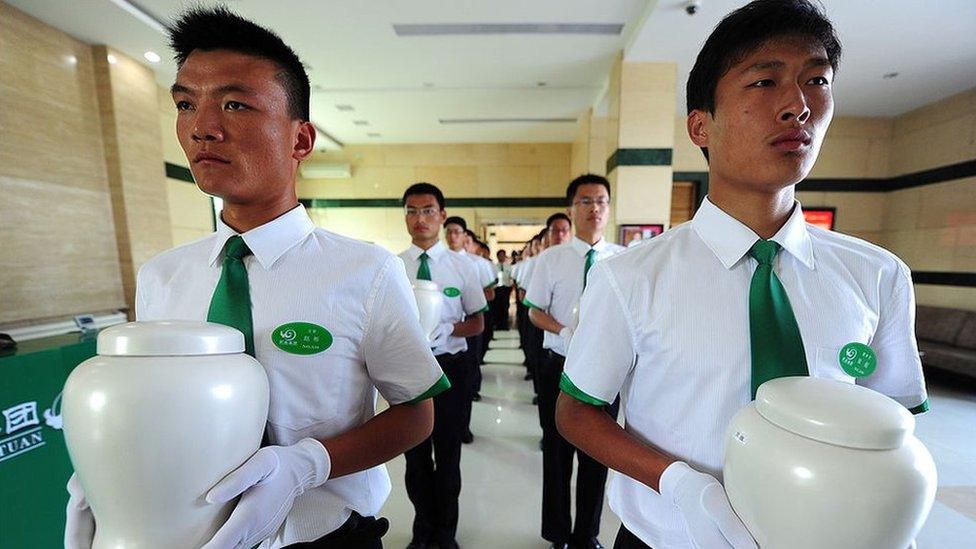Ancient Chinese tomb-sweeping festival goes hi-tech
- Published
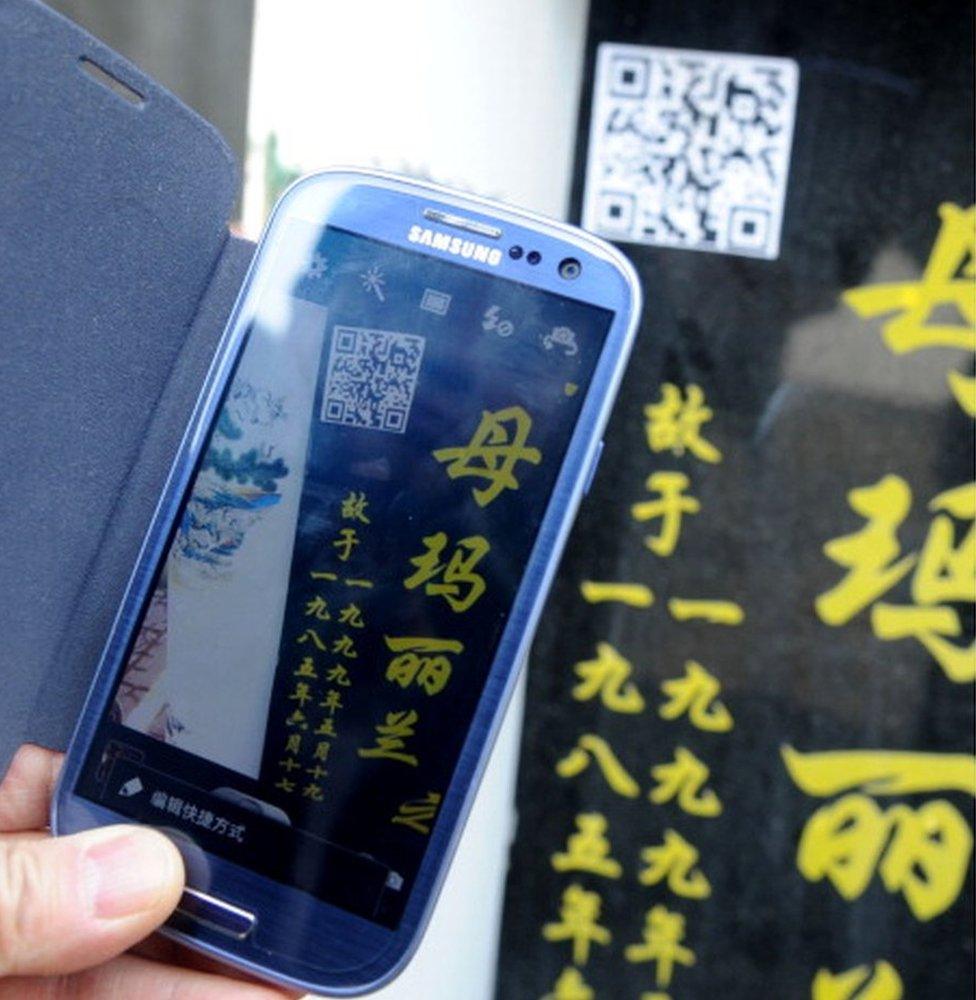
Some cemeteries in China now offer QR codes embedded on tombstones
Millions of ethnic Chinese people will be paying their respects to dead ancestors this week, as they observe the ancient Qing Ming festival.
The centuries-old festival, also known as "tomb sweeping day", is traditionally observed by sprucing up loved ones' graves and making offerings to their spirits.
But in recent years, it has taken on a more hi-tech style for some people.
Virtual mourning
This year, one cemetery in Nanjing in China has rolled out a special service for time-starved mourners, reported Beijing News.
If you can't get to the grave yourself, staff at the Yuhuatai Gongdeyuan cemetery will clean tombs and place bouquets for paying clients, who watch the ritual via a livestream on the Wechat app instead.
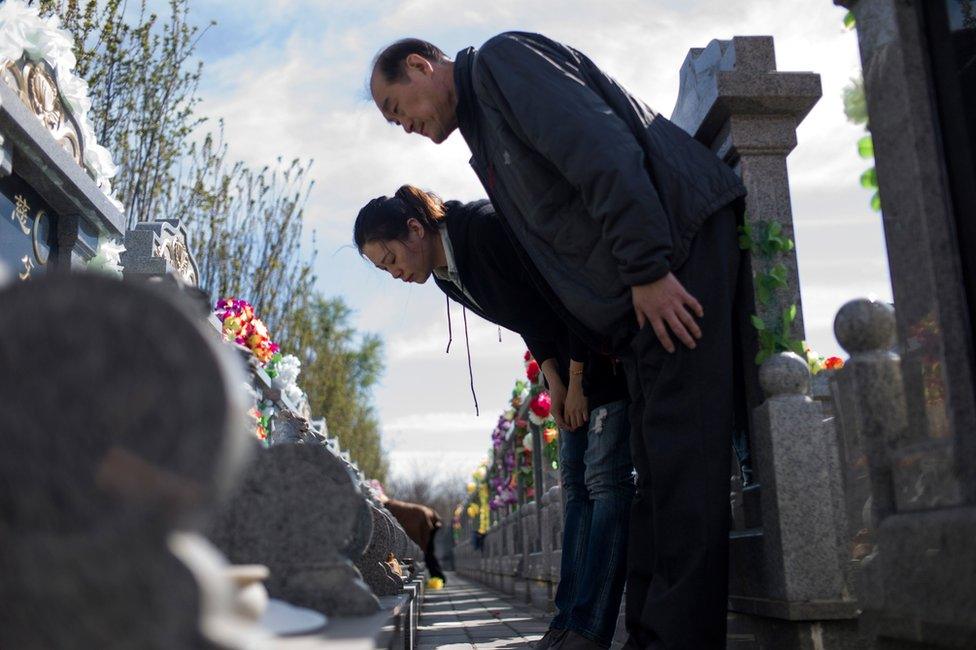
Many Chinese still believe that it is more sincere to pay respects at a tomb in person
Many cemeteries now also operate online memorial pages, where you can pay your respects by burning virtual candles and buying virtual gifts, reports Shanghai Daily., external
Some embed QR codes on tombstones - scanning the code with your phone allows you to access interactive memorials featuring photos and videos of your loved ones.
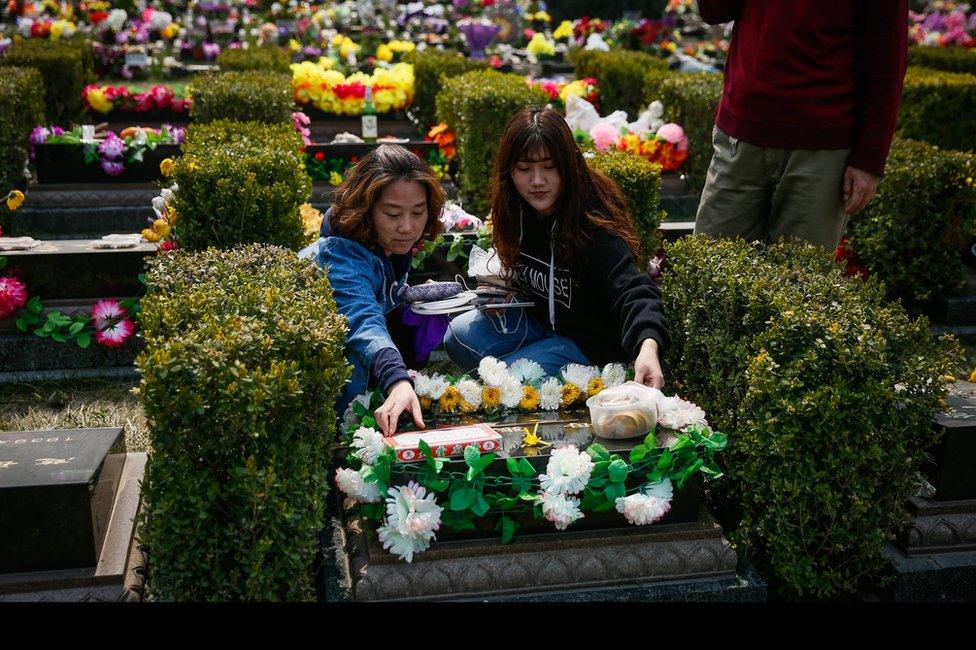
One Qing Ming tradition is to place food offerings by the grave
The Changqing cemetery in Beijing, external has gone one step further by removing the actual grave itself - the deceased is cremated and their ashes put in a biodegradable urn. The family is then given a plaque engraved with a QR code as a sort of virtual grave.
It is the latest space-saving measure in China where authorities have been promoting cremation and other alternatives to traditional burials.
Hiring professional mourners has also become increasingly popular in recent years among those unable to travel home to pay their respects.
But it has attracted an inevitable backlash among traditionalists who see it as insincere.
Going green
Another reason to encourage virtual mourning is that it cuts down on air pollution during the festival, which is officially on 4 April but is observed throughout the week.
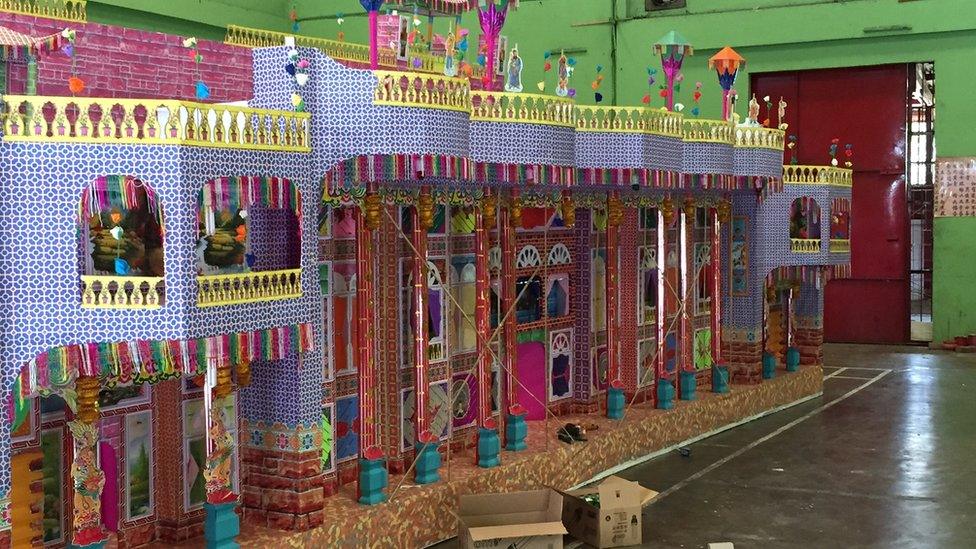
Funeral offerings can be vast and elaborate, like this one in Medan, Indonesia
The Chinese believe that burning joss sticks, joss paper, and paper offerings - sometimes quite large ones - honours the dead and transmits money and other goods to their loved ones in the afterlife.
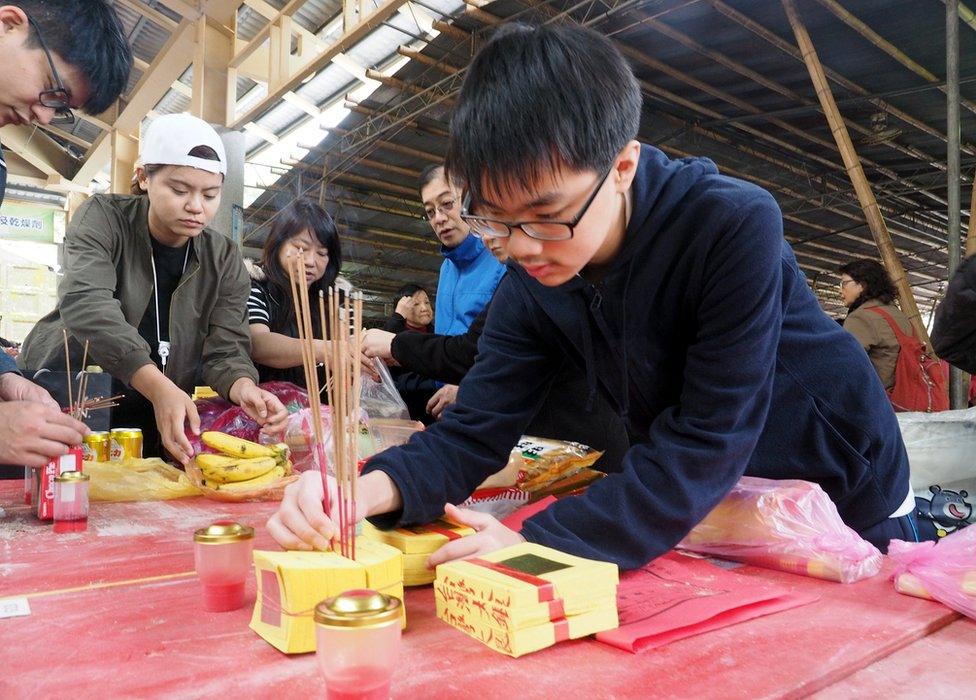
Burning joss sticks, or sticks made of incense, is a common Qing Ming practice
In Singapore, one Buddhist temple this year has banned devotees from burning "treasure chests" - large paper boxes containing paper clothes and luxury goods - reports The Straits Times., external
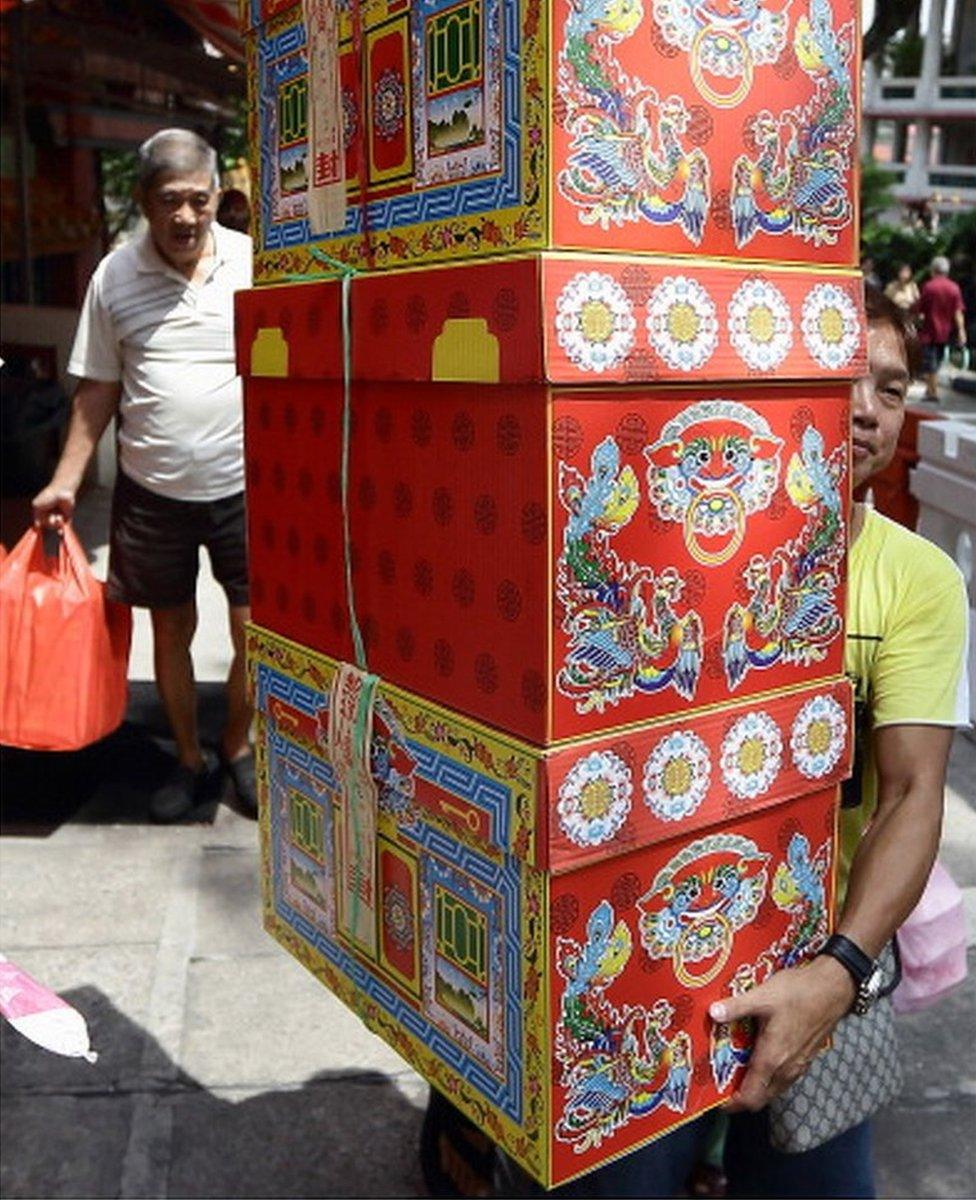
Monks at the temple said that the "treasure chests" created large amounts of ash and smoke when burnt
Meanwhile in Malaysia - where dengue fever is a concern - some shops are selling biodegradable urns, external for joss sticks, to replace normal urns which could collect rain water and breed mosquitoes.
Paper chase
Still, that has not stopped some Chinese people from splashing out on extravagant and modern offerings for the dead.
Burning paper versions of luxury clothes, handbags, watches, and gadgets is not uncommon.
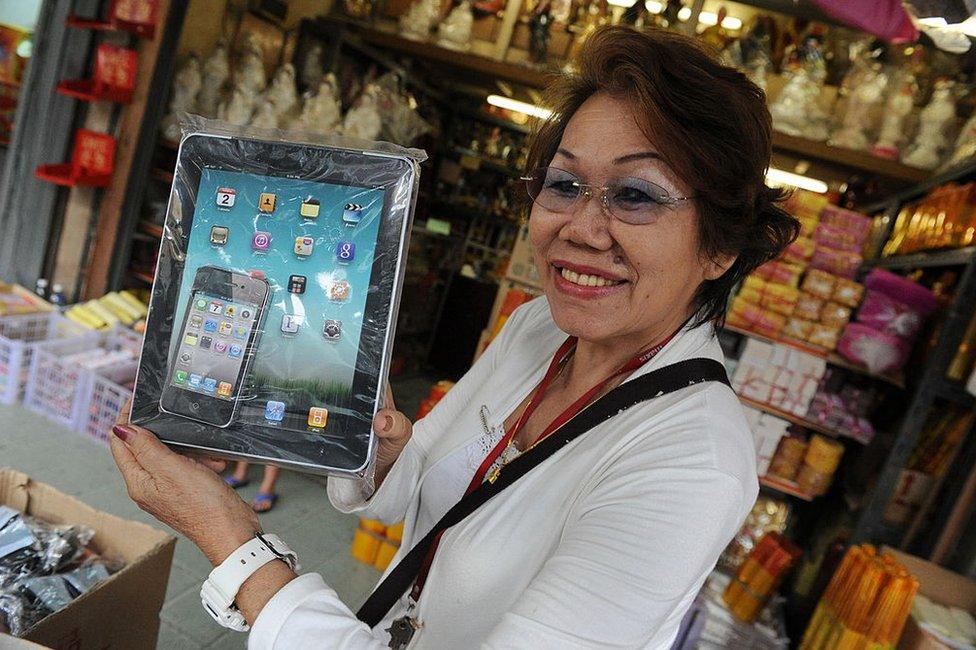
You can buy paper iPads and iPhones for the dead too...
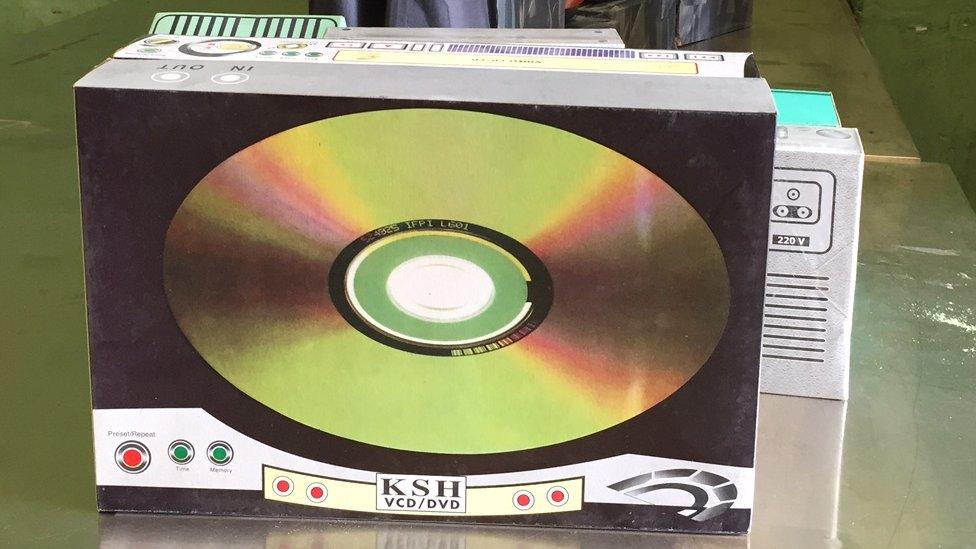
...and CD players in case your loved one preferred older technology.
One Chinese family in Malaysia this year took it to another level this year when they spent the equivalent of £3,035 ($3,800) on a life-size replica of a yellow Lamborghini., external
The paper craftsman told the Sin Chew Daily newspaper that he had received orders for "super bikes, yachts, aeroplanes and bicycles" as well.
- Published31 December 2015
